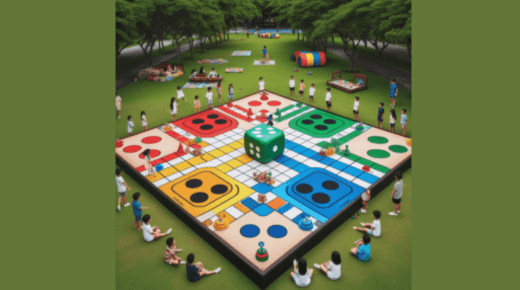Ludo: A Game for All Ages and Occasions

Ludo, a timeless classic, has transcended generations and cultural boundaries to become a beloved game enjoyed by people of all ages around the world. Whether played casually at home, during family gatherings, or in competitive settings, Ludo holds a special place in the hearts of players for its simplicity, strategy, and social appeal. Let’s explore why Ludo remains a versatile game suitable for every occasion and age group.
In a world filled with complex video games and high-tech entertainment options, sometimes it’s the simple, timeless games that bring the most joy. One such game is Ludo, a classic board game that has stood the test of time and remains a favorite across generations. Whether you’re looking to bond with family, have fun with friends, or enjoy a relaxing solo game, Ludo offers an engaging and entertaining experience for everyone. Its straightforward rules, strategic gameplay, and universal appeal make it perfect for any occasion, making it a staple in households around the world. Let’s explore why Ludo continues to captivate players of all ages and remains a go-to choice for fun and camaraderie.
The Appeal of Ludo
Ludo’s popularity stems from several key factors that contribute to its universal appeal:
1. Easy-to-Learn Rules
It features straightforward Ludo rules that are easy to understand, making it accessible to players of all ages and skill levels. The basic gameplay involves rolling a dice and moving tokens around the board to reach the home column, with simple mechanics that allow beginners to grasp the game quickly.
2. Strategic Depth
Despite its simplicity, Ludo offers strategic depth that challenges players to think ahead, plan their moves, and adapt to changing game dynamics. Players must balance risk and reward, strategically position their tokens, and capitalize on opportunities to outmaneuver opponents.
3. Versatility in Gameplay
Ludo’s versatility allows it to be played in various settings and formats:
– Educational Settings: In educational settings, Ludo serves as a valuable tool for teaching counting, strategic thinking, and sportsmanship to children.
– Competitive Play: For enthusiasts seeking a challenge, Ludo tournaments and online competitions provide opportunities to showcase skills, compete for rankings, and connect with a global community of players.
4. Cultural Significance
Ludo holds cultural significance in many regions, reflecting local traditions, customs, and gameplay variations. Whether known as Pachisi in India, Mensch ärgere Dich nicht in Germany, or Non t’arrabbiare in Italy, each variant preserves the game’s heritage while adding unique elements that resonate with local players.
Ludo Across Generations
Ludo’s enduring appeal lies in its ability to transcend generational gaps and bring people together:
– Children: It introduces children to basic Ludo game mechanics, counting skills, and social interaction. It teaches patience, turn-taking, and the importance of both winning and losing gracefully.
– Adults: Adults appreciate Ludo for its nostalgia, strategic challenges, and the opportunity to unwind and bond with loved ones after a busy day.
– Elderly: Ludo provides elderly players with a mentally stimulating activity that enhances cognitive functions, memory retention, and social engagement.
Conclusion
Ludo’s timeless charm and adaptability make it a game for all ages and occasions. Whether played for leisure, education, or competition, Ludo continues to captivate players worldwide with its blend of simplicity, strategy, and social interaction. As it evolves through digital platforms and cultural adaptations, Ludo remains a cherished pastime that brings joy, laughter, and meaningful connections to players of every generation. So, gather your tokens, roll the dice, and embark on an adventure filled with fun and camaraderie. Happy playing!

